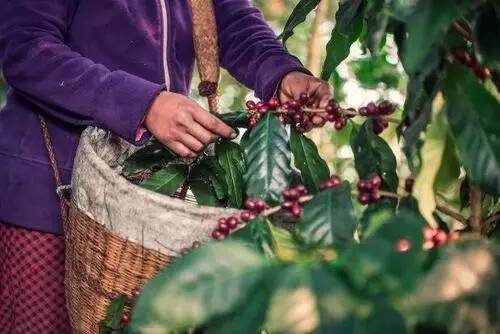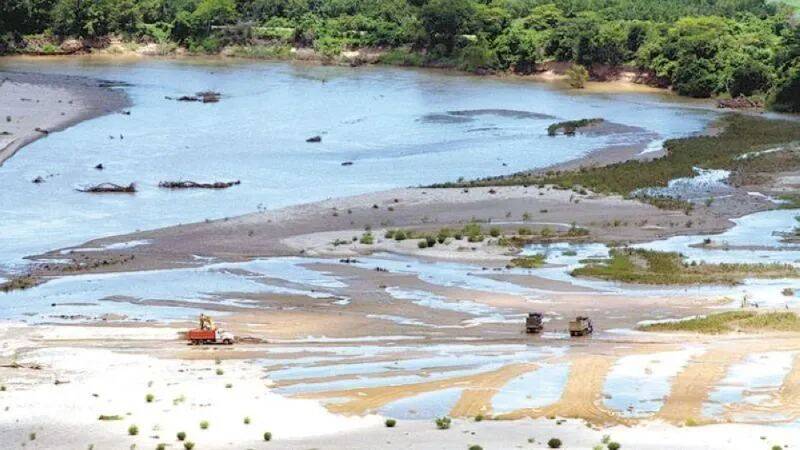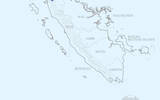Affected by multiple factors, the export volume and value of Salvadoran coffee beans have decreased significantly.
Recently, according to a report released by the Salvadoran Coffee Institute (ISC), the export volume and export volume of Salvadoran coffee beans decreased significantly in the four months before the coffee harvest season, that is, from October 2023 to January 2024.
According to the report, coffee growers in El Salvador exported 2245 tons of coffee beans in the first four months of the 2023 Coffee harvest season, a decrease of 46.9 percent compared with the same period of the 2022 Coffee harvest season, and coffee bean exports totaled US $9.8 million, a decrease of 50.2 per cent compared with the same period in the previous quarter. But in January 2024, Salvadoran coffee exports were worth only $668300, a year-on-year drop of 91.3%.

In terms of export markets, the United States is the largest seller of Salvadoran coffee beans, accounting for 47 per cent of its total exports, followed by Italy with 10 per cent, Saudi Arabia and Belgium with 8 per cent each, as well as Dominica, Germany and Canada.
Coffee growers and producers in El Salvador say the decline in coffee bean exports is related to the decline in production, which was only 35000 tons in the first four months of the season, down 2560 tons from the same period last season, according to data released by ISC. And the Salvadoran Coffee Growers Association (ACAFESAL) had earlier predicted that coffee bean production would be 37500 tons during the 2023 / 24 harvest season, which is lower than in previous years. This is mainly due to extreme weather impacts, with El Salvador ranked 28th among the world's most vulnerable countries to climate change, with the impact of climate change mainly concentrated in infrastructure and agriculture, according to a report. In July and August last year, El Salvador experienced dry weather caused by El Ni ñ o, followed by extreme rainfall at the end of winter. these climate events have led to a reduction in the production of El Salvador's major crops, such as sugar cane, rice, corn and coffee beans.

The chairman of the Salvadoran Coffee Cooperative Union said a few days ago that he was worried about the impact of El Ni ñ o on the current coffee harvest season. Although the picking period of coffee beans (usually from October to May) has been delayed, 70% of the coffee forests have already been picked, so coffee production will be reduced in the future. In addition, the low price of coffee futures on the New York Stock Exchange has reduced the enthusiasm of the coffee industry, and some coffee growers have even sold their own coffee farms, which are used to develop tourism. And it also faces the problem of labor shortage.
However, there is good news that the export of Salvadoran coffee to China is on the rise, and many coffee practitioners are optimistic about the Chinese market. Although the Chinese market is not among the top five export destinations of Salvadoran coffee, local traders are optimistic about the potential of the Chinese market, and at present, a total of 13 Salvadoran coffee trading companies have been registered with the Chinese customs, and it is believed that there will be planting in the future. to restore the Salvadoran coffee industry.
Important Notice :
前街咖啡 FrontStreet Coffee has moved to new addredd:
FrontStreet Coffee Address: 315,Donghua East Road,GuangZhou
Tel:020 38364473
- Prev

Indonesian Coffee Bean | introduction to PWN Gold Manning in Sumatra
In Asia, there are many coffee producing countries, such as Papua New Guinea, Yunnan, Vietnam, Indonesia and so on. Indonesia is famous for its fourth largest coffee producer in the world and Mantenin coffee beans. Indonesia Coffee Indonesia is a Southeast Asian country, with Papua New Guinea, East Timor and
- Next

Why does Qianjie always use three-stage coffee brewing? Where is the advantage of three-stage water injection compared with one-cut water injection?
So far, the extraction of hand-brewed coffee has given rise to countless brewing methods! Such as a knife flow, four or six rush, volcanic rush, Kono style cooking and so on, a variety of different cooking let us have more fun. But it so happens that Qianjie focuses on three-stage cooking! I believe this is what many friends will feel.
Related
- What grade does Jamaica Blue Mountain No. 1 coffee belong to and how to drink it better? What is the highest grade of Blue Mountain coffee for coffee aristocrats?
- What are the flavor characteristics of the world-famous coffee Blue Mountain No. 1 Golden Mantelin? What are the characteristics of deep-roasted bitter coffee?
- Can I make coffee a second time in an Italian hand-brewed mocha pot? Why can't coffee be brewed several times like tea leaves?
- Hand-brewed coffee flows with a knife and a tornado. How to brew it? What is the proportion of grinding water and water temperature divided into?
- What is the difference between Indonesian Sumatra Mantinin coffee and gold Mantinin? How to distinguish between real and fake golden Mantelin coffee?
- What does bypass mean in coffee? Why can hand-brewed coffee and water make it better?
- Unexpected! Ruixing Telunsu lattes use a smoothie machine to foam milk?!
- % Arabia's first store in Henan opens into the village?! Netizen: Thought it was P's
- Does an authentic standard mocha coffee recipe use chocolate sauce or powder? Mocha Latte/Dirty Coffee/Salty Mocha Coffee Recipe Share!
- What is the difference between Vietnam egg coffee and Norway egg coffee? Hand-brewed single product coffee filter paper filter cloth filter flat solution!

